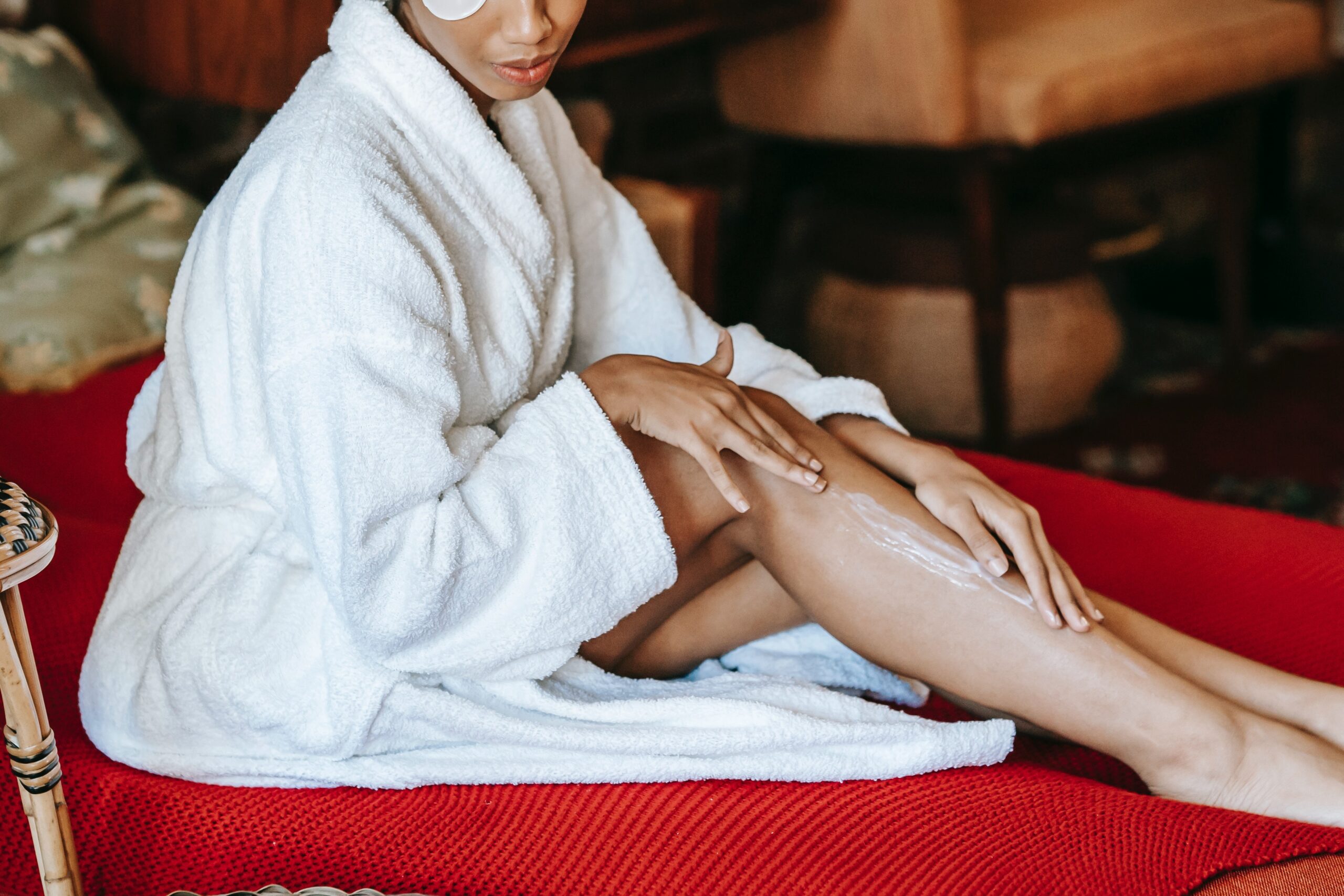Tips and tricks to get this skin concern under control.
Winter is an unhappy time for my skin. The dropping outdoor temperatures combined with the Sahara-dry air of indoor heating means that my skin’s natural state turns itchy, rough and red. I’ve always had sensitive skin, but in the last few years it’s been prone to seasonal eczema flare ups.
Also known as atopic dermatitis, eczema is a skin condition that presents as patches of dry, itchy, red and bumpy skin that flares up periodically. My eczema shows up in the wintertime and while it was difficult to deal with at first, I’ve figured out a cold weather routine that calms my skin and keeps flare-ups at bay.
If you’re also struggling with eczema troubles, here are a few of my tried and true most effective tips to help you soothe stressed-out skin.

Start In The Shower
To start your eczema treatment journey, say goodbye to super-hot water and strongly-scented bath products. Hotter water temperatures can strip the skin of its naturally protective oils and make the skin more prone to dehydration, while fragrance and overly aggressive cleansers are known to cause eczema flare-ups.
Keep your shower at a comfortably warm, not hot, temperature and look for gentle, fragrance-free shower gels and soaps to cleanse your skin. My personal favorite is La Roche-Posay’s Lipikar Wash AP+ a dermatologist recommended cleansing milk that lathers nicely with a silicone body scrubber. Pro tip: Silicone scrubbers won’t harbor irritating bacteria and have a much softer texture compared to a loofah or a washcloth. Bye, bye unnecessary irritation.
Hydrate, Hydrate, Hydrate (Gently!)
As soon as I get out of the shower, I gently pat my skin with a towel to absorb any excess water and then, while my skin is still damp, I apply Benton Aloe Real Cool Soothing Gel from my neck to my ankles. Packed with 93% aloe leaf extract, this gel provides an instant calming and cooling effect to sensitized skin thanks to anti-inflammatory Japanese seaweed extract. It’s also fragrance free and doesn’t contain any drying alcohol.
Before the aloe gel fully absorbs, I follow up with a richer body cream to lock everything in. Nécessaire’s Body Lotion – Fragrance Free is an excellent option for cranky winter skin, combining luxuriously nourishing oils with vitamins and omega fatty acids to strengthen the skin’s barrier.
Treat Breakouts With Care
Even when your skin is properly hydrated, eczema can flare up unexpectedly. For me small patches of itchy, inflamed bumps can develop on my back and legs and, without intervention, will keep me up at night scratching.
When my skin gets especially itchy, I reach for a hydrocortisone itch relief cream like Aquaphor Itch Relief Ointment which quickly calms the urge to scratch and helps to reduce redness and inflammation. Keep in mind that hydrocortisone is a steroid and should be used sparingly – I only apply it as a spot treatment over my body lotion and never more than a few times a week.
Create A Happy Skin Environment
I could only handle so many winter mornings of waking up with dry, inflamed skin I’d unknowingly scratched at in my sleep. Desperate for some relief, I purchased a humidifier a few years ago and it’s become an essential in the winter months.
Whether you go with a cool or warm mist option, a humidifier helps to release moisture in the air that your skin will in turn absorb, keeping it comfortably hydrated instead of sandpaper dry. Added bonus? Running a humidifier as you sleep also keeps scratchy throats and dry sinuses at bay, so you can breathe easier during cold and flu season.
If you’ve tried these tips and are still experiencing painful eczema symptoms, speak to a dermatologist for further advice.
Do you struggle with eczema? How do you manage your symptoms? Let us know in the comments.
The post How To Deal With Winter-Aggravated Eczema appeared first on The Klog.
from The Klog https://ift.tt/3tLScrn